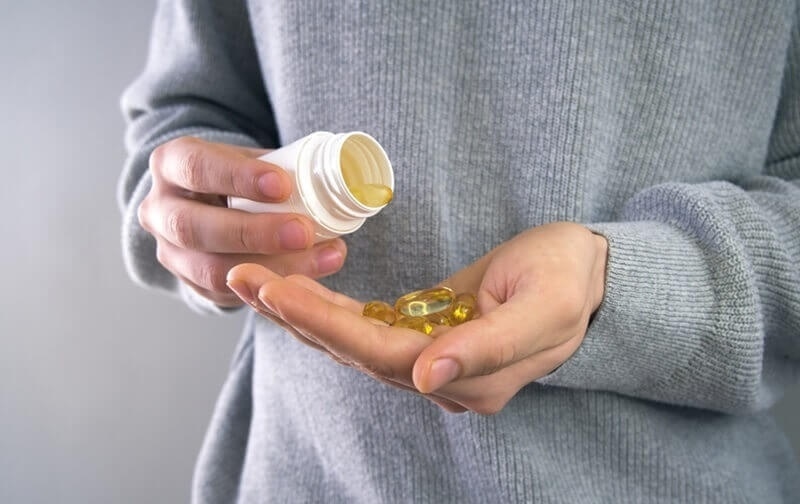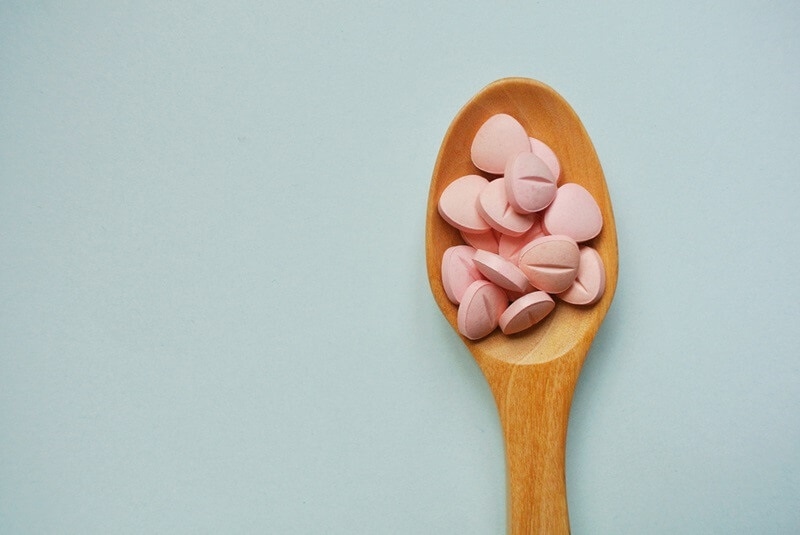
Discover Evidence of the Best Vitamin to Lower Cholesterol
When it comes to heart fitness, cholesterol frequently takes center stage. Millions of Americans are looking for the best vitamin to lower cholesterol, particularly as heart disease remains a major health challenge. For years, people have seemed beyond prescribed drugs to find herbal methods to decrease LDL cholesterol, inclusive of dietary modifications and dietary supplements. Among the most talked-about alternatives are niacin for cholesterol and plant sterols, both of which have proven promise in clinical studies. But can vitamins clearly make a distinction? And in that case, which of them stands out as the best for coronary heart protection?
This guide takes an in-depth look at the research at the back of niacin and plant sterols, setting apart data from myths. By the quit, you'll recognize how those vitamins work, their benefits and obstacles, and whether or not they are probably the right choice for your lifestyle. If you're interested in nutrients for coronary heart health, this newsletter will give you proof-primarily based answers.
Why Lowering Cholesterol Matters
Before diving into supplements, it's important to recognize why LDL cholesterol control is this sort of huge deal. Cholesterol itself isn't the villain-it's crucial for producing hormones, vitamin D, and cellular membranes. The hassle arises whilst levels emerge as unbalanced:
- LDL (Low-Density Lipoprotein): Often called "awful cholesterol," excessive levels can result in plaque buildup in arteries.
- HDL (High-Density Lipoprotein): Known as "proper cholesterol," this helps remove LDL from the bloodstream.
- Triglycerides: Another form of fat that, whilst accelerated, will increase cardiovascular risk.
Unchecked excessive LDL and triglycerides can result in atherosclerosis, a coronary heart attack, or stroke. That's why people search for effective strategies-which include excellent nutrition to decrease LDL cholesterol-to maintain stages under control.
Learn More: How to Tell Apart the Vitamins You Need
Niacin for Cholesterol: What the Evidence Shows

One of the most broadly researched vitamins in the cholesterol conversation is niacin, additionally known as vitamin B3. For a long time, docs prescribed niacin for cholesterol control, and it remains a warm topic in discussions of herbal approaches to decrease LDL cholesterol.
How Niacin Works
Niacin enables improving cholesterol by using:
- Increasing HDL cholesterol (the "proper" LDL cholesterol).
- Lowering triglycerides.
- Reducing LDL cholesterol in positive instances.
This makes niacin unique due to the fact that few remedies boost HDL so effectively.
The Research on Niacin
- Studies display that high doses of niacin can boost HDL levels by 15-35%, which is extensive.
- It can also decrease triglycerides by 20-50%.
- However, the impact on decreasing LDL cholesterol is mild in comparison to statins.
The Limitations
Despite its advantages, niacin use has declined in recent years because:
- High doses (regularly needed for results) can cause aspect effects like flushing, itching, or liver strain.
- Recent massive-scale research recommends that niacin might not lessen heart attacks as effectively as previously notion when blended with other medications.
Still, niacin remains an essential part of the discussion about the fine diet to lower LDL cholesterol, mainly for human beings looking into vitamins for heart health.
Plant Sterols as Natural Ways to Lower Cholesterol
While niacin has an extended clinical history, plant sterols (additionally known as phytosterols) provide another powerful approach to natural ways to lower LDL cholesterol. These compounds are clearly observed in the result: veggies, nuts, seeds, and entire grains.
How Plant Sterols Work
Plant sterols are structurally much like cholesterol. When consumed, they compete with cholesterol for absorption in the intestines. In this manner, less nutritional cholesterol makes its way into the bloodstream.
The Research on Plant Sterols
- Consuming 2 grams in step with day of plant sterols can lower LDL cholesterol by means of approximately 10%.
- Plant sterols don't drastically affect HDL or triglycerides; however, their LDL-reducing ability is well established.
- They're regularly introduced to fortified meals like margarine spreads, yogurts, and orange juice.
Why They Matter
Plant sterols offer one of the maximum consistent herbal ways to decrease LDL cholesterol, supported by decades of scientific research. While they will no longer be as dramatic as prescription drugs, they fit seamlessly right into a heart-healthy lifestyle.
Other Vitamins for Heart Health
While niacin and plant sterols stand out, they aren't the most effective nutrients connected with cardiovascular well-being. Keep in mind these additional nutrients for coronary heart health:
- Vitamin D: Although further research is needed, a vitamin D deficiency has been linked to an increased risk of cardiovascular disease.
- Fish oil, or omega-3 fatty acids: These are well known for lowering triglycerides and promoting the stability of the coronary heart rhythm.
- Vitamin K2: Could help keep calcium from accumulating in arteries.
- Coenzyme Q10 (CoQ10): Helps coronary heart cells produce energy and may lessen the negative effects of statins.
Even while they aren't often referred to as the good vitamins for lowering LDL cholesterol, they are part of a larger, heart-healthy approach.
Diet and Lifestyle: Natural Methods to Reduce Cholesterol
Supplements are just one component of the overall picture. For long-lasting results, combine them with natural methods to reduce LDL cholesterol, such as:
- Dietary Fiber: Oats, beans, and other foods reduce the absorption of low-density lipoproteins.
- Healthy Fats: Replace saturated fats with unsaturated fats found in avocados, almonds, and olive oil.
- Exercise: Increasing HDL and lowering LDL can be completed with at least 150 minutes of moderate exercise consistent with a week.
- Weight control: Losing more weight immediately lowers levels of cholesterol.
- Reducing alcohol use and smoking: These behaviors have an unfavorable effect on LDL cholesterol balance.
When blended, those techniques beautify the LDL cholesterol-reducing advantages of the high-quality weight loss plan.
Read More: The Daily Benefits of Going Out for a Walk
Safety and Considerations Before Taking Niacin or Plant Sterols
Although plant sterols and niacin are thought to be natural ways to reduce LDL cholesterol, there may be risks or obstacles associated with them.
- Niacin Risks: Risks associated with niacin include flushing, nausea, elevated blood sugar, and liver issues (when taken in excess). Always seek advice from a physician earlier than taking prescription-grade niacin.
- Plant Sterols Limitations: Safe for most people; however, they'll slightly decrease beta-carotene absorption (a sort of antioxidant). Eating greater fruits and veggies offsets this.
- Medication Interactions: Both dietary supplements can also have interactions with LDL cholesterol-reducing tablets, so medical guidance is essential.
Who Needs to Think About the Best Vitamin to Lower Cholesterol?
- Individuals with mild concerns approximately cholesterol: Niacin or plant sterols can also help certainly control levels if you aren't presently on statins.
- Individuals Looking for Complementary Assistance: They can be combined with clinical remedies and lifestyle adjustments.
- Those Who Are Curious About Vitamins for Heart Health: Those nutritional supplements may additionally improve regular cardiovascular balance, although cholesterol isn't always your main trouble.
But today, not everyone will gain in the same way. For this reason, it is beneficial to obtain a comprehensive lipid panel, examine it, and consult a medical professional.
Learn More: Raw Food Resources
Final Thoughts on the Best Vitamin to Lower Cholesterol
Is it feasible for vitamins to lower LDL cholesterol? Yes, in keeping with the evidence, as a minimum for a few. There are great, empirically supported advantages to each plant sterol and niacin for LDL cholesterol. Both remain beneficial resources for those looking to decide an exceptional weight loss plan to reduce LDL cholesterol, even though they might not completely replace prescription medications for those with severe issues.
You could take significant measures to protect your heart by combining such dietary supplements with natural methods of lowering LDL cholesterol, such as healthy food, exercise, and lifestyle changes. Additionally, they offer a comprehensive defense against cardiovascular illness when combined with other nutrients for heart health.
If you're geared up to take fee of your cholesterol, speak with your healthcare provider about whether niacin, plant sterols, or a combination might be proper for you.
